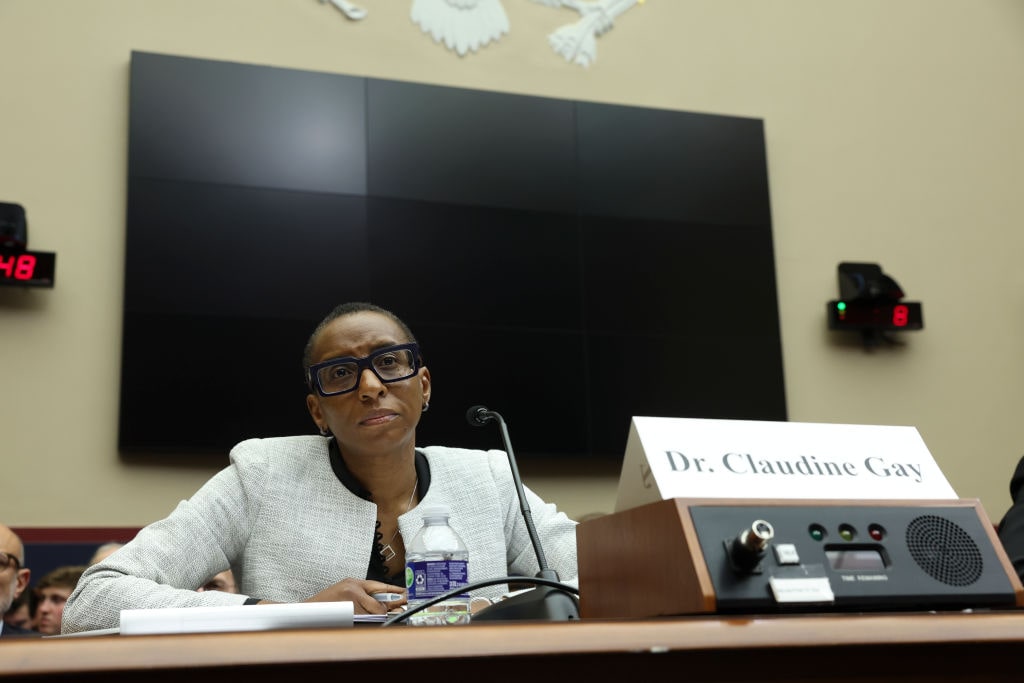Table of Contents
Mark Angelides
Liberty Nation
In 1988, a youthful Joe Biden dropped his first bid for the White House after being caught plagiarizing parts of his campaign stump rhetoric. It was a blow that took him more than 30 years to recalibrate. Now, VP Kamala Harris has been credibly accused of plagiarism of a far more serious variety. And while it is unlikely that history will repeat itself, the echoes of the past and the obvious concordance may add weight to an already burdened run for the presidency.
Kamala’s Career Launchpad
Harris launched her successful bid for attorney general of California, in part, on the back of her 2009 book, “Smart on Crime: A Career Prosecutor’s Plan to Make Us Safer.” It detailed how prosecutors and politicians needed to be more reform-minded in their approach to criminal justice. A new report by Austrian “plagiarism hunter” Stefan Weber and senior fellow Christopher Rufo of the Manhattan Institute for Policy Research claims that Harris and her co-author, Joan O’C Hamilton, lifted large passages of the book “verbatim” from “uncited” sources.
The researchers cite more than a dozen instances where text was copied word-for-word without any acknowledgment of the original authors. One of the more notable examples presented by Rufo and Weber from the book in question is this:
“High Point had its first face-to-face meeting with drug dealers, from the city’s West End neighborhood, on May 18, 2004. The drug market shut down immediately and permanently, with a sustained 35 percent reduction in violent crime. High Point repeated the strategy in three additional markets over the next three years. There is virtually no remaining public drug dealing in the city, and serious crime has fallen 20 percent citywide.
“The High Point strategy has since been implemented in Winston-Salem, Greensboro, and Raleigh, North Carolina; in Providence, Rhode Island; and in Rockford, Illinois.
“The U.S. Department of Justice is launching a national program to replicate the strategy in ten additional cities.”
A press release from 2000 by the John Jay College of Criminal Justice reads as follows:
“High Point had its first face-to-face meeting with drug dealers, from the city’s West End neighborhood, on May 18th, 2004. The drug market shut down immediately and permanently, with a sustained 35% reduction in violent crime. High Point repeated the strategy in three additional markets over the next three years. There is virtually no remaining public drug dealing in the city, and serious crime has fallen 20% citywide.
“The High Point strategy has since been implemented in Winston-Salem, Greensboro, and Raleigh, NC; in Providence, RI; and in Rockford, IL. The US Department of Justice is launching a national program to replicate the strategy in ten cities.”
While the book lists the press release as a source in the footnotes, the near-verbatim text without quotation marks, direct citation, or acknowledgement raises some serious eyebrows.
A Case for Plagiarism?
Weber writes of this and other incidents, “In many other instances, even when a source was cited with a footnote, the text was directly copied and pasted without using quotation marks. Quotation marks would have been the most transparent and honest approach, also in non-academic books.” He continues in his claim that, “Further signs of dishonesty may be evident when sources were copied, but specific details were altered, such as replacing a Subway store owner with a sandwich shop clerk (p. 124) or highlighting Southeast Asia in the context of the US gang problem (p. 184).”

The 49-page analysis by the research duo makes some bold claims. Weber notes that, “Kamala Harris fabricated a source reference, inventing a nonexistent page number.” And that, “The self-promotional content from Goodwill Industries was copied verbatim without citing the source (Goodwill Industries was her ‘primary partner’ on in [sic] the ‘Back on Track’ program).”
Plagiarism has been much in the news this last year with the stepping down of Harvard President Claudine Gay. In December 2023, Rufo outlined numerous instances where Gay had plagiarized sources for her dissertation. By January, she had resigned. Liberty Nation News’ Executive Editor Leesa K. Donner wrote, at the time:
Harvard has a strict policy regarding such things. A section of its rubric on the theft of another’s writing is called mosaic plagiarism: ‘If you copy bits and pieces from a source (or several sources), changing a few words here and there without either adequately paraphrasing or quoting directly, the result is mosaic plagiarism.’
Media Goes to Bat for Harris
Several left-leaning outlets decided that attack was the best defense, and pulled out all the stops to protect the vice president from scandal. While solid journalism should always be the watchword, and verification remains the essential element of news reporting, it seems that prominent voices in the Fourth Estate are not above selective editorial choices.
The New York Times reported that in a review of the book, it “found that none of the passages in question took the ideas or thoughts of another writer, which is considered the most serious form of plagiarism. Instead, the sentences copy descriptions of programs or statistical information that appear elsewhere.”
The Times continues:
The five passages that Mr Rufo cited appeared to have been taken partly from other published work without quotation marks.
Jonathan Bailey, a plagiarism consultant in New Orleans and the publisher of Plagiarism Today, said on Monday that his initial reaction to Mr Rufo’s claims was that the errors were not serious, given the size of the document.
“This amount of plagiarism amounts to an error and not an intent to defraud,” he said, adding that Mr Rufo had taken relatively minor citation mistakes in a large amount of text and tried to ‘make a big deal of it.’”
However, as Mr Rufo notes on his X account, it seems that the paper of record selectively chose which parts to examine. He posted:
The Times claims that I only argued that Kamala Harris plagiarized ‘five sections’ involving ‘about 500 words.’ But this isn’t true. In my story, I wrote that Stefan Weber argued there are ‘more than a dozen’ instances of ‘vicious plagiarism.’ This past Saturday, I provided the Times not only with my written analysis, which argues that there are ‘more than a dozen,’ but with Weber’s full dossier, which included 18 allegations of varying severity. So, the Times deliberately withheld this crucial contextual information from its readers and from the supposed plagiarism expert, who, based on this limited information, called it ‘not serious.’ They could have easily confirmed the ‘more than a dozen’ point, but instead, lied by omission.
Indeed, the plagiarism consultant that the Times quotes, Jonathan Bailey, took to X himself to wade in on the matter. He writes, “I want to be clear that I have NOT performed a full analysis of the book. My quotes were based on information provided to me by the reporters and spoke only about those passages.”
Target the Messenger
It is notable that other outlets picked up on the Times’ reporting rather than conduct their own analysis or, indeed, go to the source material provided by Rufo and Weber. But of particular interest is that the Gray Lady, rather than just refuting the accusation, decided to instead target the report authors as racist.
“Mr Rufo is part of a loose confederation of conservative writers and activists who, during the past year, have tried to expose plagiarism among academics, many of whom have been Black scholars who work in the field of diversity and inclusion,” the paper says. Going further, “Some academics, however, have characterized the [Mr Rufo’s campaign against plagiarism by] as racist.” Given the subject of the story, it is surprising that the Times neither names, quotes, nor cites the academics who make this claim.
It is entirely possible that Ms Harris did not even write the book herself – ghostwriters are a commonly used currency for many in the political sphere. It is also possible that the numerous instances listed by Rufo and Weber are just oversights – in fact, it is probable. But just as with the Harvard Claudine Gay fiasco, the knee-jerk reaction to dismiss credible claims of plagiarism as nothing more than a racial attack inevitably fails.
Ms Gay found out that the internet is forever, and one can only bluster reality so far before the floodgates open and the wider world comes to accept that which was first claimed. Joe Biden discovered it in 1988. With just weeks to go before Election Day, Kamala Harris must deal with these claims – genuine or otherwise – directly before the current narrative morphs into the much-feared October surprise. If she doesn’t, she may be following in Mr Biden’s footsteps in more ways than one.
This article was originally published by Liberty Nation News.







